RESEARCH
Scientific studies led by Dr. Perla Kaliman and with the collaboration of Dr. Richard Davidson (Center for Healthy Minds, University of Wisconsin Madison), Dr. Susana Roque López (Inocencia en Peligro-Colombia), and psychiatrist Elkin Llanes Anaya (University of Santander, Colombia) inclure liens, provided evidence that a multimodal psychotherapeutic group program brings psychological benefits and epigenetic changes in adolescents with traumatic experiences. The program, conceived and developed by French-Colombian psychologist Susana Roque Lopez, founder of the NGO Innocence in Danger Colombia, includes mindfulness-type meditation, combined with artistic expression activities and psychological therapy for trauma (EMDR).
At the heart of Generation Alpha Minds programs is the scientific evidence that ACEs impact the brain, body, and behavior.
Forty-four girls between the ages of 13 and 16 who had experienced four or more adverse childhood events and were living in residential childcare settings participated in this initiative. At the end of the program, the adolescents significantly decreased the symptomatology associated with post-traumatic stress and increased their ability to connect with the present moment in a conscious way, being more aware of their body and their thoughts. The results of this work also demonstrate that this multimodal group strategy results in epigenetic changes in trauma-sensitive biological pathways that are related to a significant decrease in post-traumatic stress symptoms.

Adverse Childhood Experiences (ACEs) increase the risk of morbidity and mortality and can have a negative impact on life chances and social behavior throughout life. Worldwide, up to one billion children aged 2-17 years, experience neglect, maltreatment, or abuse at the physical, sexual, or emotional level (Hillis et al., 2016). Given the risk of intergenerational transmission of maltreatment and abuse behaviors, these findings could represent an avenue for interrupting intergenerational cycles of suffering.
Our long-term goal is to help stop intergenerational cycles of suffering.
The results of this research are published in internationally peer-reviewed scientific journals that can be freely accessed at the following links: Scientific Reports, 2022; Child Abuse & Neglect, 2021.

OUR PROGRAM
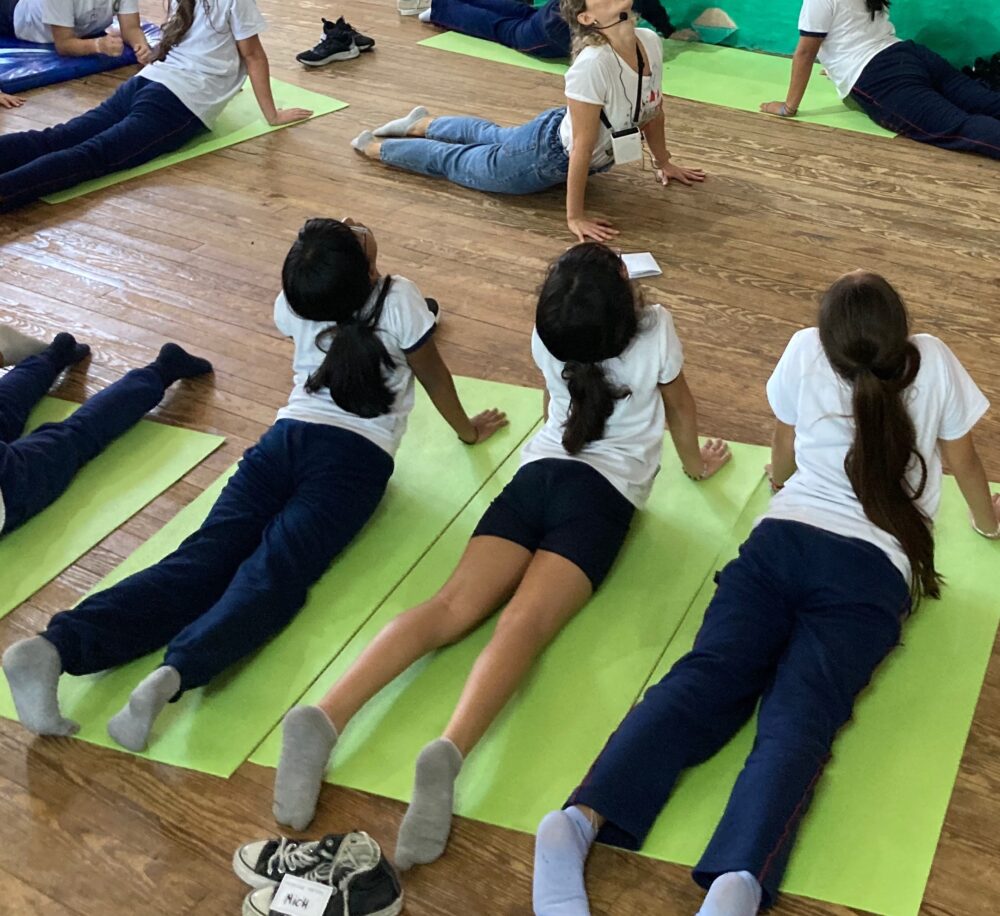
Our program is designed for schools and community care centers that support children and adolescents. In response to the growing number of young people facing mental health issues, stress, anxiety, and trauma, we have developed a 12-session multimodal program spread over 2 or 3 months, with each session lasting two hours.
Our program includes practices for managing stress and regulating emotions, and acquiring strategies to process challenging experiences. It also helps develop self-confidence, cultivate values such as gratitude and kindness toward oneself and others, strengthen the sense of connection with others, and foster a search for meaning and purpose in everyday life. These are tools that children can continue to practice on their own anywhere and anytime after completing the program, even if they do not have easy access to an instructor or therapy.
The full set of techniques included in our multimodal program is designed to help children learn to manage their emotions and develop resilience and well-being from preadolescence onward, with the goal of improving their lives, the lives of others, and their environment. Our long-term vision is to help prevent intergenerational cycles of suffering.
Our program is based on scientific evidence: Scientific Reports, 2022; Child Abuse & Neglect, 2021; Dahl et al., 2020; Child Protection and Practice, 2025.
OUR INTERNATIONAL ACTIONS
ARGENTINA
Mental health evaluation and pilot school program for emotion and stress regulation in children from a vulnerable neighborhood in Buenos Aires, Argentina
Collaboration with Mind & Life Europe and CONICET
2024-2025
We evaluated psychological well-being and mental health indicators in 11-year-old children as well as the feasibility of a trauma-sensitive multimodal school program. The program combines emotional and attentional regulation strategies, artistic expression, and strategies to process challenging experiences. Results were published in the scientific journal Child Protection and Practice (2025). Findings highlight the population’s vulnerability in terms of mental health and the urgent need for early screening and gender- and trauma-sensitive prevention measures. Mindfulness and self-compassion training emerged as key protective components for promoting mental health in preadolescents.


EL SALVADOR
A multimodal trauma-informed school program to promote mental health for children exposed to adverse childhood experiences in El Salvador.
Collaboration with the non-profit organization Kanzeon Zen El Salvador.
2024-present
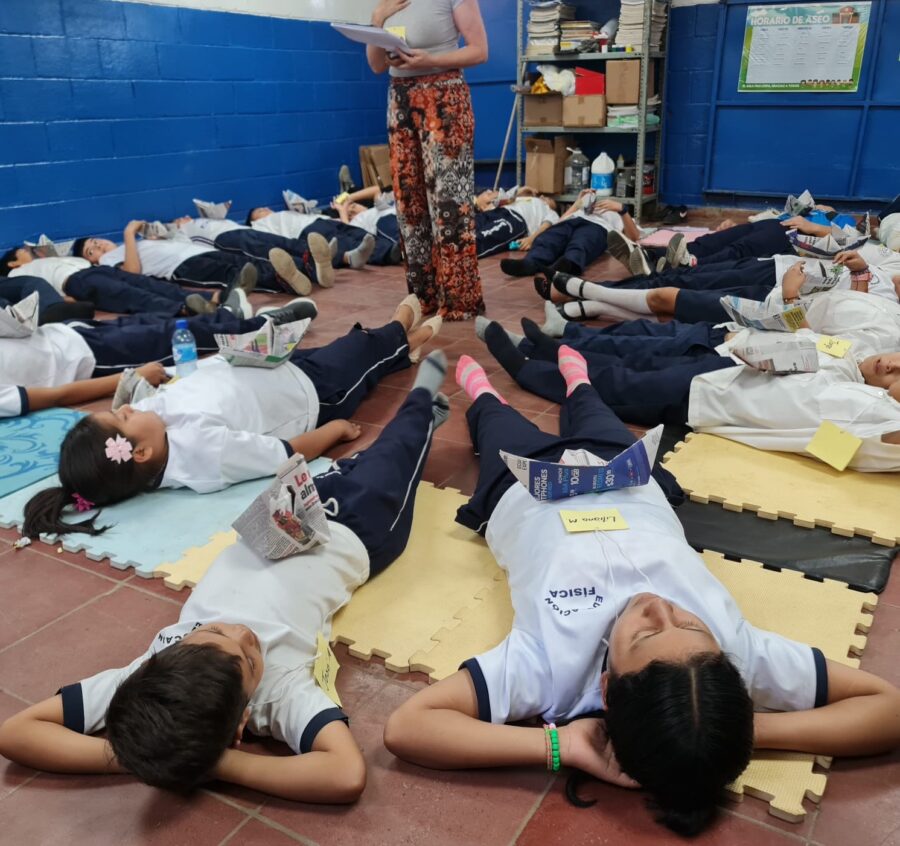
The 13 de Enero de Talnique Community in El Salvador was built after the 2001 earthquake that devastated the entire area of the Sierra del Balsamo, destroying the coffee plantations that supported the inhabitants of the zone. Currently, the 13 de Enero community lives in conditions of social vulnerability. Children are exposed to multiple ACEs, including physical, emotional and sexual abuse, domestic violence, parental addictions, mental illness in the household, etc. Scientific research shows that ACEs can have serious short- and long-term physical, mental and behavioral consequences, with a significant risk of intergenerational transmission of abuse and neglect.
Based on our previous work, this project offers a 2-month school program for preadolescents. Our multimodal group program includes practices for stress management and emotional regulation, as well as strategies for processing challenging experiences. It also helps develop self-confidence, cultivate values such as gratitude and kindness toward oneself and others, strengthen the sense of connection with others and the living world, and foster a search for meaning and purpose in everyday life.
First program results in El Salvador (2025):
The program was widely accepted, with high attendance and no dropouts. Children reported feeling better, listened to, and valued. They expressed interest in continuing and recommending the program to other children. Teachers observed significant improvements in behavior, emotional expression, and classroom coexistence. Families reported positive changes in children’s emotional regulation, conflict resolution, and communication, with benefits at home.

UKRAINE
Multimodal trauma-informed school program for the promotion of mental health in children exposed to the war in Ukraine.
Collaboration with the Ukrainian Mindfulness Association and WEGA ONG-D (Luxembourg).
2024-present
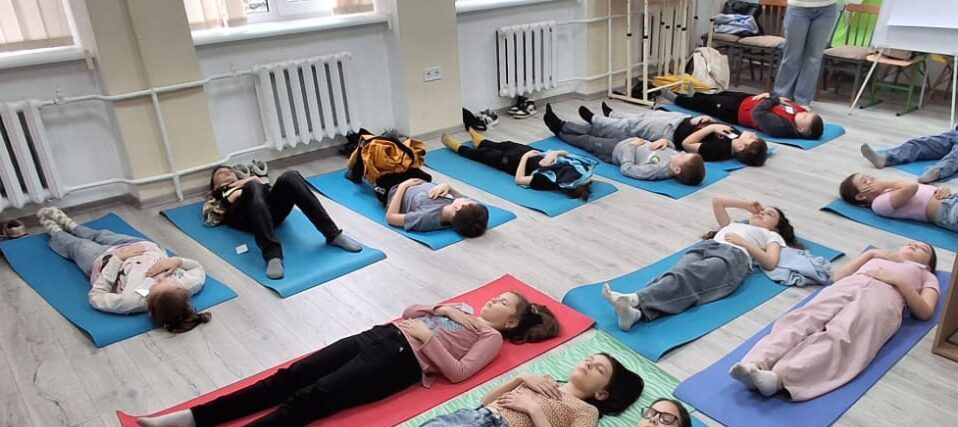
Recent surveys in Ukraine show that 40% of children and young people between the ages of 13 and 19 fear for their lives and those of their loved ones because of the war. Nine out of ten say they want to participate in the reconstruction of their country. It is estimated that around 1.5 million children in Ukraine are at risk of anxiety, depression, post-traumatic stress disorder and other mental health problems due to their daily contact with war. However, they will be the actors of the future of their country.
Generation Alpha Minds, in collaboration with the Ukrainian Mindfulness Association (https://ngo-uma.com/), implement a multimodal school program based on mindfulness, artistic expression, and trauma-reprocessing strategies for preadolescents in Lviv. The full set of techniques in the GAM curriculum is designed to help children learn to recognize and regulate their emotions, and to develop their resilience and well-being from preadolescence onward, with the aim of promoting long-term mental health and, consequently, improving their lives, the lives of others, and their environment. The program also aims to provide them with emotional self-regulation and psychological well-being techniques so that children can continue to practice independently anywhere and anytime after the program ends. The impact of the program is evaluated in collaboration with reasearchers from the Ukrainian Catholic University. This projet is supported by WEGA ONG-D (Luxembourg).
.

FRANCE
Multimodal school program for promoting mental health in preadolescents at the school Collège Madame de Sévigné, Mauron (Bretagne).
Collaboration with the La Maison de Santé de Ronsouze (Bretagne, France).
2025-2026
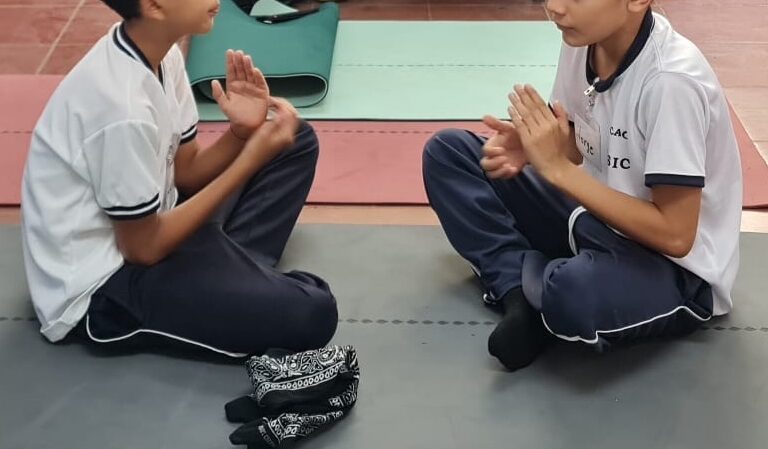
The 12 weekly sessions of two hours each, will be delivered by three qualified instructors (two psychologists and one physician) to 6 sixth-grade students (11 yo). The program is free of charge for the school, and it is supported by Generation Alpha Minds and La Maison de Santé de Ronsouze, Ploërmel.
The full set of techniques in the GAM curriculum is designed to help children learn to recognize and regulate their emotions, and to develop their resilience and well-being from preadolescence onward, with the aim of promoting long-term mental health and, consequently, improving their lives, the lives of others, and their environment. The program also aims to provide them with techniques that children can continue to practice independently anywhere and anytime after the program ends.
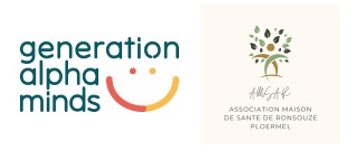
FRANCE
Mental health promotion program for children in Residential Child Care Centers (MECS) in the Moselle Department
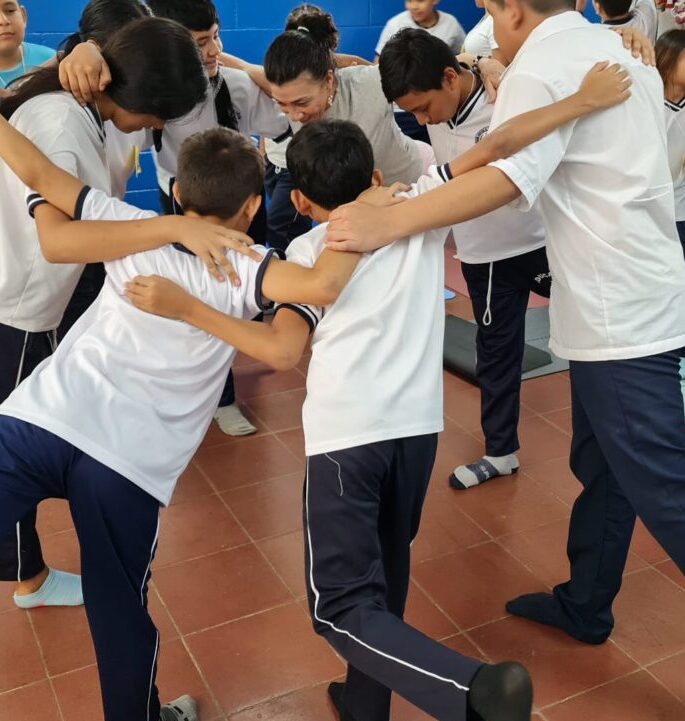
Collaboration with the Moselle Department, the Pierre Janet Center, University of Lorraine, and Nouveau Monde Fund.
2025-2026
We will train professionals (educators, psychologists) from five Residential Child Care Centers (MECS) in the Moselle Department as instructors of the Generation Alpha Minds program, in order to implement cycles of 12 group sessions with children aged 10 to 12 placed in MECS. The content of this program aims to provide practical tools for stress management and emotional regulation, as well as strategies for processing challenging experiences. It also helps develop self-confidence, cultivate values such as gratitude and kindness toward oneself and others, strengthen the sense of connection with others, and foster a search for meaning and purpose in everyday life.
The impact of the program will be measured through a scientific study conducted with the University of Lorraine. This project is funded by Fonds Nouveau Monde and Generation Alpha Minds.

TESTIMONIALS
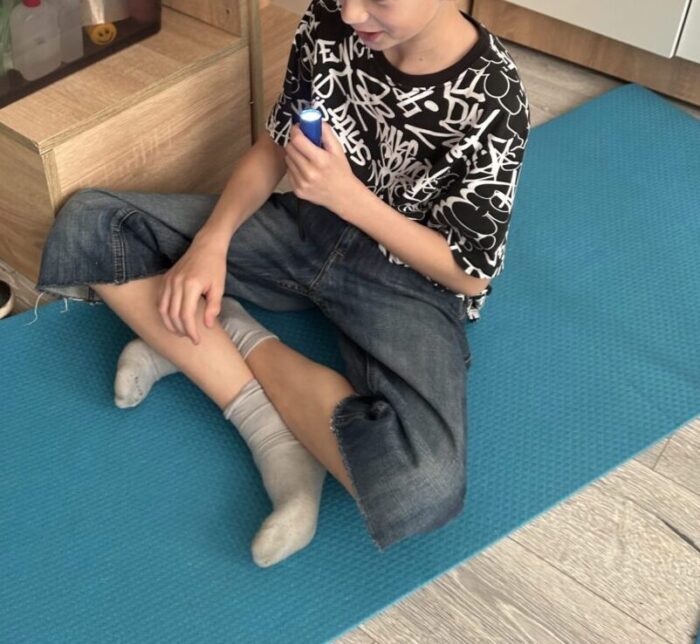
The children’s voices
Liliana, 12 years old « I feel better thanks to the program. I can calm down when I am angry, scared, or anxious. I feel more relaxed, and sometimes when I’m angry, I can control myself. I use the glitter bottle or breathing, and it calms me. »
Iker, 12 years old « When I’m angry, I always breathe. Recently the bus was driving wildly, a lady was almost hit, and I got very scared. Then I breathed and calmed down. Yesterday I was stressed and did tapping to relax. I also taught my mom how to practice tapping when she’s stressed, and I was happy to teach her. »
Jehu, 11 years old « I felt calmer thanks to the superpowers I was taught. When I am angry or sad, I calm myself with mountain breathing and the “pause button” bracelet. »
Karla, 11 years old « I thought my classmates were talking about me and saying I was ugly because they looked at me a lot. So, I put myself in their place and thought differently. I started breathing and felt more confident. Before, I didn’t talk to my classmates or trust them. Now I talk to them more and make friends. At home, I get less scolding because when I’m angry, I go to my room, breathe, and calm down. »
Alejandro, 11 years old « I practice the superpower of values like sharing and respect, at school and at home. Today more people speak to me with trust and respect, and so do I. It feels really good. »
Julito, 11 years old « During an exam, I was nervous, I breathed, and I calmed down. I’ve learned to manage my emotions and don’t get as angry anymore. I tell my mom, and she practices it too: she breathes and relaxes when she’s angry. »
Michelle, 11 years old « I had a lot of homework piling up and was stressed. I did tapping and calmed down. I also saw my monster friends —like fear and anger— and greeted them. After talking to them, I felt relaxed. Monster friends like anger, fear, or sadness are not bad, they are natural: they are emotions. »
The teachers’ voices
Principal of school in Talnique, El Salvador « This project has a wide impact because it allows students to strengthen their personal skills to better face everyday challenges and develop resilience in all areas. »
Principal of school in Lviv, Ukraine « What children learned in this program will remain in their minds, hearts, and experience. »
The families’ voices
« I really liked it. Thank you for the care you give to the children. »
« From my point of view, my daughter learned to get along better with her classmates. I think it’s great that she discovers new things and develops her abilities. »
« I don’t think I can see all the results yet, but as a mother, I am delighted and satisfied. I have a beautiful little girl who really enjoyed the program, and I’m very happy for what makes her happy. Thank you. »
« I noticed it was beneficial. »
« I’ve seen positive changes in my son: he’s more relaxed about adult problems, like puberty, for example. »
« She is happier today than she was before. »
« The program has been very useful for both children and parents. »
« It would be good to continue the program because children always need guidance and professional support. »

RATES

We offer fee-free programs to resource-strapped vulnerable communities to help ensure that our programs can get where they belong.
Site partners on the higher end of our sliding scale enable us to offer support to smaller, resource-strapped schools and community based organizations. This balancing act is part of how we ensure that we can program as widely as we can, maintain the staffing and the scientific research to validate and improve our programs.